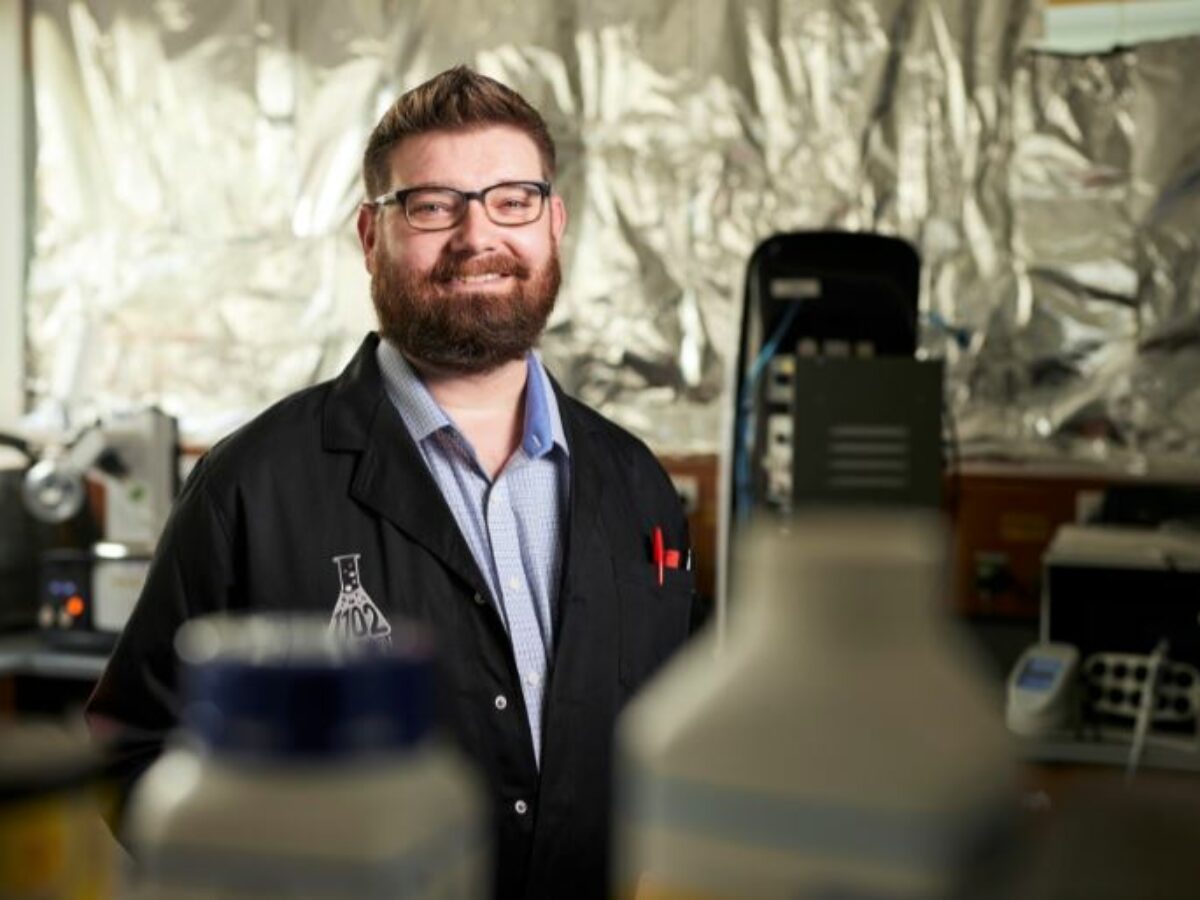Flinders looks to smart polymer coatings

Researchers at Flinders University in Adelaide have developed ‘smart polymers’ made from waste chemicals that not only protect pipework but remove mercury from water.
They claim ‘an imaginative approach to polymer surface coating’ produced a sustainable way to remove mercury while providing a wide range of protection including for preventing metal corrosion and solvent damage of plastic PVC pipes.
The smart coating can also prevent acid and water damage of concrete surfaces and be repaired in situ by a simple heating process, says Flinders University project leader Max Mann (pictured).
Mann said: “Made easily from elemental sulfur and dicyclopentadiene (DCPD is a by-product of petroleum refining), this new coating is multi-functional which gives us wide scope to use it in a wide range of useful ways and for longer lasting industrial products and components.
“This exciting new area of research extends fundamental chemistry to several practical applications.”
Mann is lead author of the cover article in this month’s issue of Polymer Chemistry.
Co-author University of Liverpool researcher Dr Bowen Zhang said: “The method for making the coating is safer than methods previously used for related coatings.
“The team developed a lower temperature process that prevented runaway reactions.”
Along with its protective powers against corrosion, solvent damage and acid and water damage, the research found the active coating can capture toxic metals such as mercury.
The coating is repairable and scratches and damage can be prepared by the simple application of heat, the Flinders-Liverpool team found.
This process is possible because of the coating’s chemical structure which allows sulfur-sulfur bonds to be broken and re-formed.
Flinders chemistry Professor Justin Chalker from Flinders’ Institute of Nanoscale Science and Technology said the research is a significant step forward in multi-functional coatings.
“The unique chemical composition of the smart coating enables protection of substrates, active removal of toxic mercury species from water and oil, and is repairable which ensures its sustainability,” said Chalker.
“The coating is solvent resistant and can also remove mercury from oil and water mixtures, which is of importance to remediation in the petroleum and gas industry.”
Read the journal article Processes for coating surfaces with a copolymer made from sulfur and dicyclopentadiene (2022) here.
Picture:
Subscribe to our free @AuManufacturing newsletter here.
Topics Technology
@aumanufacturing Sections
Analysis and Commentary Awards Defence Manufacturing News Podcast Technology Videos






